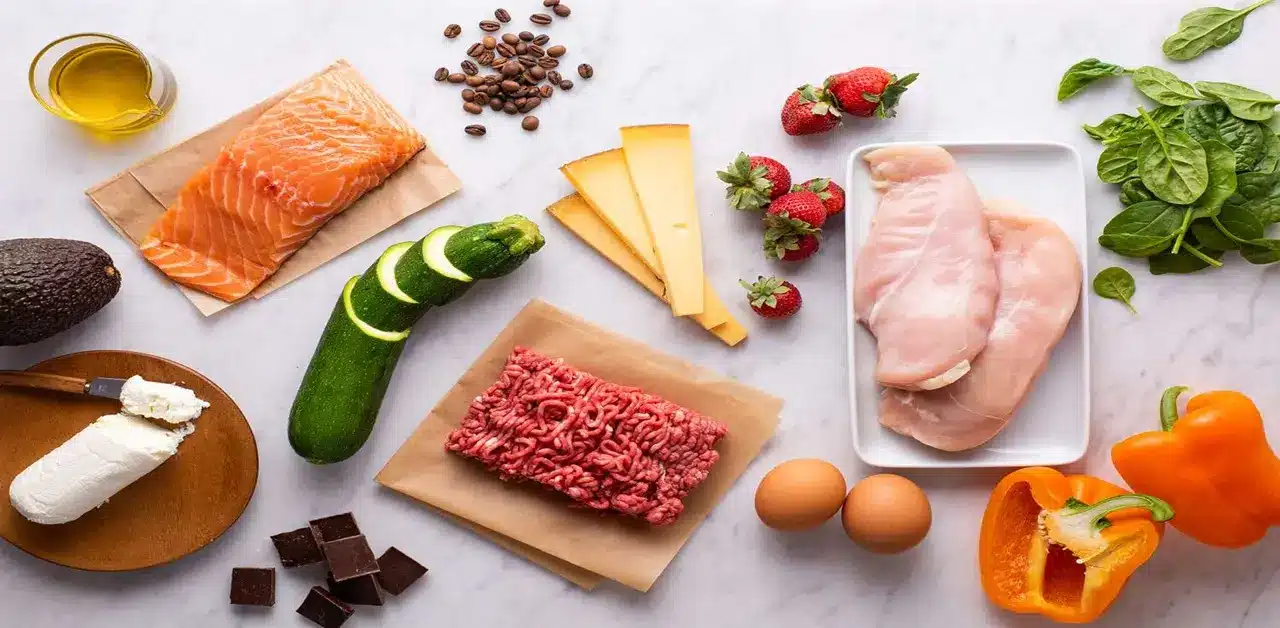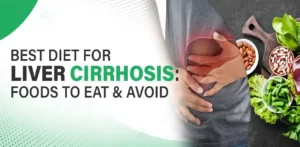Contents
- 1 What is a Ketogenic Diet?
- 2 How Ketosis Works
- 3 Keto Diet Plan
- 4 Macronutrient Ratios
- 5 Sample Keto Meal Plan
- 6 Keto Diet for Weight Loss
- 7 Keto Diet for Beginners
- 8 Keto Diet Advantages and Disadvantages
- 9 Keto Diet Side Effects
- 10 Foods to Avoid on Keto
- 11 Keto Diet Benefits
- 12 Keto Food List for Beginners
- 13 What To Know Before You Go Keto
What is a Ketogenic Diet?
A ketogenic diet, commonly referred to as the keto diet, is a high-fat, low-carbohydrate diet designed to shift the body’s metabolism away from carbohydrates and towards fat as its primary energy source. This metabolic state is called ketosis.

How Ketosis Works
When carbohydrate intake is drastically reduced, the body is deprived of its primary energy source—glucose. As a result, the liver converts fats into ketones, which then serve as an alternative fuel source. This shift not only promotes fat burning but also influences several hormonal and metabolic pathways, leading to various health benefits.
Ketosis can be measured through blood, urine, or breath tests, but physical symptoms like increased thirst, dry mouth, frequent urination, and decreased hunger are also common indicators.

Keto Diet Plan
Creating an effective keto diet plan involves understanding and balancing your macronutrient ratios, selecting appropriate foods, and preparing meals that help maintain ketosis.
Also Read: “What Is a Pollotarian Diet? Benefits, Food Lists, and More”
Macronutrient Ratios
- Fats: 70-75% of daily intake. This is the primary energy source and includes healthy fats like avocados, olive oil, and nuts.
- Proteins: 20-25% of daily intake. Protein is necessary for muscle maintenance and should come from high-quality sources such as meat, fish, and eggs.
- Carbohydrates: 5-10% of daily intake. This very low carb intake typically amounts to 20-50 grams of carbs per day, which can come from non-starchy vegetables and limited berries.

Sample Keto Meal Plan
Breakfast: Avocado and bacon with scrambled eggs
A nutrient-dense start to the day that includes healthy fats and proteins.
Lunch: Grilled chicken salad with olive oil dressing
A balanced meal providing lean protein and essential fatty acids, with fibrous greens to aid digestion.
Dinner: Salmon with sautéed spinach and cauliflower rice
A dinner rich in omega-3 fatty acids from the salmon, along with low-carb vegetables.
Snacks: Cheese slices, nuts, and dark chocolate
Convenient keto-friendly snacks that provide a quick energy boost while keeping you in ketosis.
At IntRest, you can customize your meal plans based on these keto principles and order from local restaurants that cater to your dietary needs.

Keto Diet for Weight Loss
The keto diet is widely recognized for its effectiveness in promoting weight loss. This is achieved through several mechanisms:
Appetite Suppression

One of the most notable benefits of ketosis is its ability to reduce hunger and appetite. This is largely due to the stabilization of blood sugar levels and the appetite-suppressing effects of ketones.
Increased Fat Burning
By shifting the body’s energy source from glucose to fat, the keto diet enhances fat oxidation, leading to greater fat loss, particularly in the abdominal area.
Improved Insulin Sensitivity
Reducing carbohydrate intake helps lower insulin levels, improving insulin sensitivity and facilitating weight loss. This effect is particularly beneficial for individuals with insulin resistance or type 2 diabetes.
Also Read: “Unveiling the Vegan Lifestyle: A Guide to Plant-Based Goodness”

Keto Diet for Beginners
Starting a keto diet can seem daunting, but with the right approach, it can be a smooth transition. Here are some tips for beginners:
Getting Started
- Educate Yourself: Learn the basics of the keto diet, how it works, and what to expect during the initial stages of adaptation.
- Meal Prep: Plan and prepare your meals in advance to avoid slip-ups and ensure you always have keto-friendly options available.
- Stay Hydrated: Drink plenty of water to help your body adapt to ketosis and avoid dehydration.
- Electrolytes: Maintain your electrolyte balance by consuming enough salt, potassium, and magnesium. This can help prevent the “keto flu,” a common set of symptoms experienced during the initial phase of the diet.
- Monitor Your Macros: Use a food diary or app to track your macronutrient intake and ensure you stay within your targeted ratios.
With IntRest, you can easily customize your preferences and get keto-friendly meals delivered to your doorstep, making it easier to stick to your diet.

Keto Diet Advantages and Disadvantages
Like any diet, the keto diet has its pros and cons.
Advantages
- Effective Weight Loss: The keto diet promotes rapid and sustainable weight loss through increased fat burning and reduced appetite.
- Reduced Appetite: Ketosis helps control hunger and reduces calorie intake without the feeling of deprivation.
- Improved Mental Clarity: Many people report better focus and mental clarity due to the steady supply of ketones as an energy source for the brain.
- Better Blood Sugar Control: The keto diet can help manage and prevent type 2 diabetes by lowering blood sugar and improving insulin sensitivity.
Disadvantages
- Keto Flu: Initial side effects like fatigue, headache, nausea, and irritability can occur as the body adjusts to ketosis.
- Restrictive: The limited food choices can make social eating and dining out challenging.
- Nutrient Deficiency: The risk of missing out on essential nutrients found in carbohydrate-rich foods if the diet is not well-planned.
Keto Diet Side Effects

While many thrive on the keto diet, others may experience side effects, especially during the initial phase known as the “keto flu.”
Common Side Effects
- Headache
- Fatigue
- Dizziness
- Nausea
- Constipation
These symptoms typically resolve within a few days to a week as the body adapts to ketosis.
Long-term Concerns
- Nutrient Deficiencies: Without careful planning, the keto diet can lead to deficiencies in vitamins and minerals such as vitamin D, calcium, magnesium, and potassium.
- Heart Health: Some individuals may experience increased cholesterol levels, though this is not universally seen.
- Bone Health: There is a potential risk of decreased bone density due to lower intake of certain nutrients.
Foods to Avoid on Keto

To maintain ketosis, it’s crucial to avoid high-carb foods. Here are some common foods to steer clear of on a keto diet:
High-Carb Foods to Avoid
- Sugary Foods: Candy, soda, and desserts are high in sugars and can quickly knock you out of ketosis.
- Grains and Starches: Bread, pasta, rice, and cereals are high in carbohydrates and should be avoided.
- Fruit: Most fruits, except for small portions of berries, are high in carbs and can interfere with ketosis.
- Legumes: Beans, lentils, and peas are too high in carbs to fit into a ketogenic diet.
- Root Vegetables: Potatoes, carrots, and parsnips are starchy and should be limited or avoided.
By using IntRest, you can filter out these high-carb foods and find keto-friendly options at local restaurants.
Keto Diet Benefits
The ketogenic diet offers numerous health benefits beyond weight loss.
Key Benefits
- Improved Mental Clarity and Focus: Ketones provide a consistent and efficient fuel for the brain, which can improve cognitive function and mental clarity.
- Better Blood Sugar Control: The keto diet can help stabilize blood sugar levels and reduce the risk of insulin resistance and type 2 diabetes.
- Increased Energy Levels: Many people experience more stable and sustained energy levels throughout the day due to the consistent supply of ketones.
- Enhanced Fat Loss: The keto diet promotes efficient fat burning, leading to significant and sustainable weight loss.
- Reduced Inflammation: Lower carbohydrate intake can decrease inflammation markers, potentially reducing the risk of chronic diseases.
Keto Food List for Beginners
Knowing which foods to include in your diet can make the transition to keto easier.
Essential Keto Foods
- Meat and Poultry: Beef, chicken, pork, and lamb are excellent protein sources.
- Fish and Seafood: Salmon, mackerel, sardines, and shellfish provide healthy fats and essential nutrients.
- Eggs: A versatile and nutrient-rich option that can be prepared in various ways.
- Dairy: Cheese, butter, and cream are good sources of fat and protein.
- Healthy Fats: Avocado, olive oil, and coconut oil are essential for maintaining ketosis.
- Low-Carb Vegetables: Leafy greens, broccoli, and zucchini are nutrient-dense and low in carbs.
- Nuts and Seeds: Almonds, walnuts, chia seeds, and flaxseeds provide healthy fats and fiber.
- Berries: Strawberries, raspberries, and blackberries can be enjoyed in moderation due to their lower carb content.
IntRest allows you to order meals containing these keto-friendly ingredients, making it easy to maintain your diet.
What To Know Before You Go Keto
Before starting a ketogenic diet, consider these important points to ensure a successful and healthy transition.
Medical Considerations
- Consult a Doctor: It’s important to consult a healthcare provider before starting the keto diet, especially if you have preexisting health conditions.
- Monitor Health Markers: Regularly check your blood sugar, cholesterol, and other key health indicators to ensure the diet is beneficial for you.
Practical Tips
- Stock Up: Keep your pantry filled with keto-friendly foods to avoid temptation and ensure you always have suitable options.
- Plan Meals: Ensure variety and balance in your diet to avoid boredom and nutritional deficiencies.
- Stay Informed: Continuously educate yourself about the keto diet, new recipes, and nutritional information to stay motivated and compliant.
With IntRest, you can simplify your keto journey by ordering meals that fit your dietary preferences and health needs.
The ketogenic diet can be a powerful tool for improving health and achieving weight loss goals. By understanding the principles, benefits, and potential pitfalls, you can embark on your keto journey with confidence. Remember, the key to success on the keto diet is planning, persistence, and staying informed.
Embrace the journey and enjoy the many benefits that come with a well-formulated ketogenic diet. With IntRest, you can easily order keto-friendly meals that fit your lifestyle and dietary needs. Happy eating!



